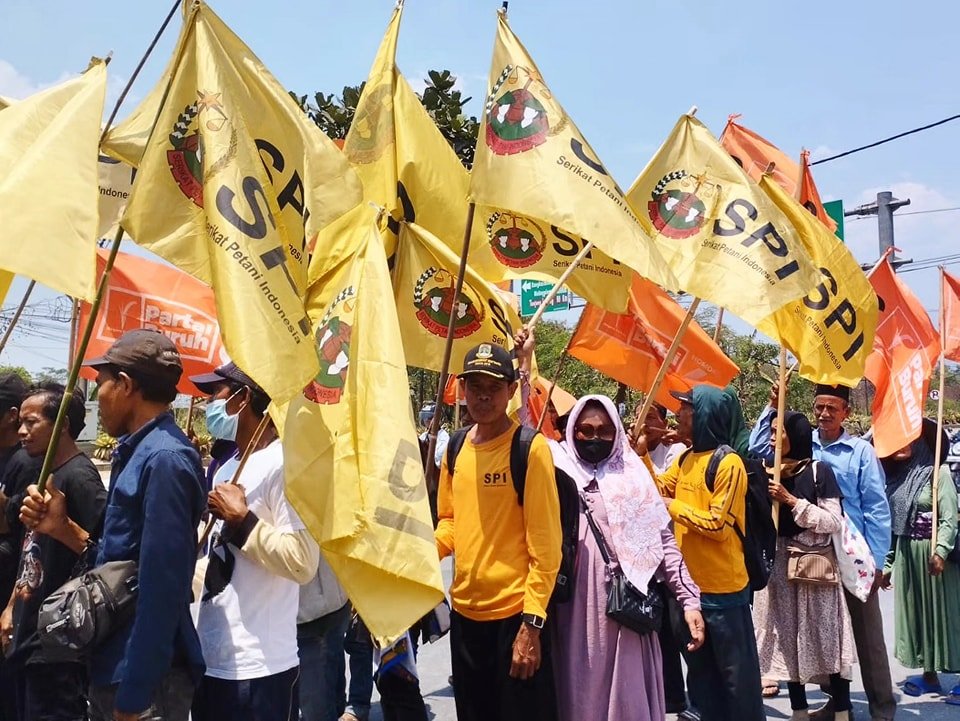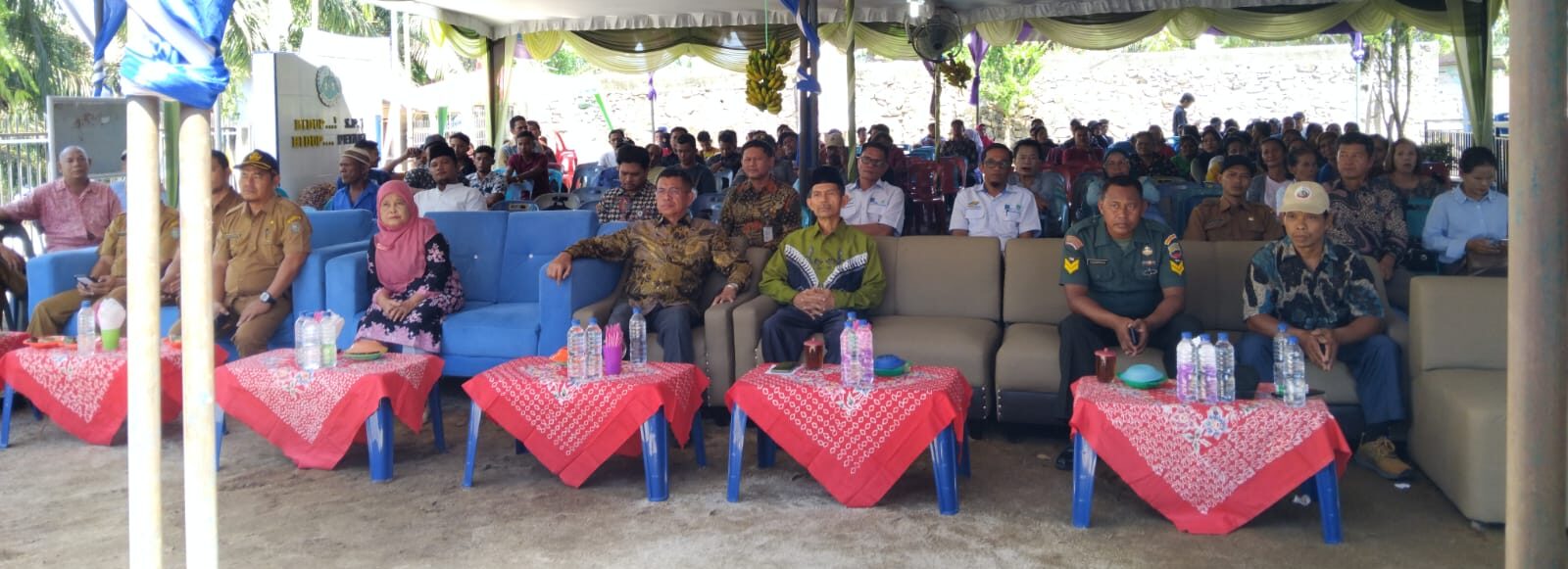Indonesia: SPI Launches Oil Palm Cooperative in North Sumatra, Advancing Agrarian Reform Campaign

North Sumatra Province – This June, members of the Indonesian Peasants Union (SPI) in Sei Kopas Village, Asahan Regency, North Sumatra, inaugurated a new Oil Palm Plantation Cooperative. The inauguration, coinciding with the 19th Anniversary of the union’s Simpang Kopas Base, drew a diverse array of stakeholders from governmental bodies to grassroots cooperatives.
Dignitaries, including representatives from the Ministry of Agriculture of the Republic of Indonesia, the Cooperative SME Rolling Fund Management Agency (LPDB), and agricultural research institutions, attended the event. Officials from the Regional Office of Agrarian Affairs and Spatial Planning/National Land Agency of North Sumatra Province also participated, underscoring the significance of this cooperative venture in advancing agrarian reforms and rural development.
Zubaidah, Chairperson of the North Sumatra Regional Board (DPW) of SPI, highlighted the pivotal role of peasants in achieving collective prosperity and called for strengthened collaboration between the government and SPI.
“The SPI Oil Palm Plantation Cooperative represents 19 years of perseverance and dedication by peasants in Simpang Kopas. Without their relentless efforts, we wouldn’t be where we are today. It is through their toil that our communities thrive,” she said, emphasizing the cooperative’s role in enhancing local economies and reducing unemployment.
The cooperative’s significance extends beyond economic benefits; it serves as a beacon for agrarian reform. Rois Regen Tarigan, Coordinator of the Land Reform Substantive Division of the BPN/ATR North Sumatra Regional Office, shared plans for collective land redistribution and certification in Simpang Kopas Village, emphasizing the cooperative’s pivotal role in communal land management.
“In Simpang Kopas, we are pursuing collective land redistribution and certification, ensuring joint ownership and management by local peasants. This initiative aims to empower peasants economically and sustainably,” explained Rois, reflecting the cooperative’s commitment to equitable land use and environmental stewardship.
Arief Hartanto, Director of the Directorate General of Plantation at the Ministry of Agriculture, underscored the cooperative’s role in bolstering Indonesia’s palm oil industry. He praised SPI’s efforts in promoting smallholder rejuvenation programs and enhancing agricultural productivity through cooperative initiatives.
“The SPI Oil Palm Plantation Cooperative plays a crucial role in advancing our palm oil sector. Through initiatives like the Smallholder Rejuvenation Program (PSR), we aim to optimize palm oil production while supporting peasants’ livelihoods,” stated Arief, highlighting the cooperative’s integral role in sustainable agricultural practices and economic empowerment.
Local government officials also expressed their unwavering support for the cooperative’s endeavors. Donal Nadapdap, Head of Simpang Kopas Village, voiced his optimism about the cooperative’s potential to uplift local communities and stimulate economic growth.
“The inauguration of the SPI Oil Palm Plantation Cooperative is a significant milestone for Sei Kopas Village. We believe this cooperative will foster economic resilience and create job opportunities, driving prosperity across our community,” remarked Donal, underscoring the cooperative’s role in local development.
Suratno, Head of Infrastructure and Extension Division at the Asahan District Agriculture Office, affirmed his department’s commitment to providing necessary support and guidance to the cooperative.
“We stand ready to collaborate with the SPI Oil Palm Plantation Cooperative in Asahan Regency. Cooperatives play a vital role in strengthening peasants’ economic positions and fostering sustainable agricultural practices,” emphasized Suratno, highlighting the cooperative’s potential to empower peasants through knowledge sharing and capacity building.
Henry Saragih, Chairman of SPI, reflected on the cooperative’s journey and its pivotal role in advocating for agrarian reform and food sovereignty. He underscored SPI’s commitment to promoting cooperatives as vehicles for economic empowerment and sustainable development in rural communities.

“The SPI Oil Palm Plantation Cooperative exemplifies our commitment to empowering peasants economically and environmentally. Our cooperative movement aims to bolster peasants’ sovereignty in their economic pursuits, promoting diverse agricultural practices and sustainable development,” articulated Henry, emphasizing SPI’s holistic approach to agricultural transformation.
The inauguration event concluded with a pledge to continue advancing cooperative initiatives and advocating for equitable agricultural practices. Binsar Daniel Manurung, Chairman of the inauguration event committee, expressed optimism about the cooperative’s future and called for continued support from local and regional authorities.
“As we celebrate this milestone, let us pledge to nurture and expand the SPI Oil Palm Plantation Cooperative. Together with government and community support, we can ensure its longevity and impact in improving peasants’ lives,” affirmed Binsar, echoing the cooperative’s commitment to sustainable development and community prosperity.

For more information, visit the SPI website.


